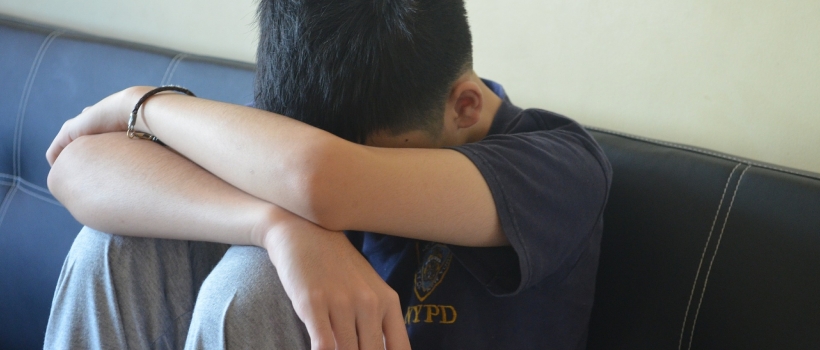Twenty-two percent of US students say they have been bullied, according to the National Center for Educational Statistics1. We asked Mary’s Center School-Based Mental Health therapist Vanessa León about this distressing phenomenon and what parents can do to help their children.
What Is Bullying?
Bullying refers to aggressive and repetitive behaviors that take place between children who have different levels of power (e.g. one child is bigger than the other).Verbal bullying includes saying or writing hurtful things, like teasing or threatening. Social bullying refers to attempts to damage someone’s reputation or relationships, like excluding someone on purpose or embarrassing them. Finally, physical bullying consists of physical acts intended to hurt people or property like hitting someone or breaking their belongings.
What Is Cyberbullying – Is That The Same As Bullying?
Cyberbullying is bullying that occurs across the internet, email, cellphones and other electronic means. Some examples include uploading embarrassing pictures of someone on social media, or sending offensive text messages. Unlike bullying in person, cyberbullying can be especially difficult to escape because it can spread so quickly.
What Is Racial Or Cultural Bullying?
Bullying towards any group that is not part of the dominant culture tends to be based on real or perceived differences. Differences in language and cultural customs like food, religious practices and family expectations are common targets for bullying and can lead to a sense of isolation from peers. Also prevalent in immigrant households is the fear that a parent or family member might be detained or deported. Living with this constant state of anxiety can lead to problems with sleeping at night, fatigue during the day, hypervigilance, irritability and difficulties concentrating. Whether it be not wanting to leave their parent’s side or reacting more aggressively towards others, all of these symptoms interrupt children’s daily lives.
How Can I Tell If My Child Is Being Bullied?
Bullying can severely impact children’s well-being. Parents and caregivers should pay special attention to changes in mood, physical health and academic performance. Children who are being bullied often seem depressed or anxious. They might experience increased feelings of loneliness, diminished pleasure in activities they previously enjoyed, changes in sleep and appetite patterns and/or somatic complaints, like headaches or stomachaches. Such symptoms can disrupt children’s behaviors, relationships with others, school attendance and grades and overall daily routine.
What Should Caregivers Do If They Find Out Their Child Is Being Bullied?
First, listen to them. Believe them. Ask questions. Brainstorm with them ways to protect themselves like ignoring a comment, saying “No”, stepping away from a situation, or talking with a trusted adult. Even if none of the bullying symptoms I mentioned earlier are present, it’s always important to carve out time each day to talk with your child. This way they know they can turn to you when they’re having problems and you can better determine whether outside support, like individual therapy, is necessary.
Should School Officials Be Notified About Bullying?
Yes! It’s important to report incidents of bullying to school administrators. Caregivers should ask what policies currently exist to prevent or respond to bullying and encourage that administrators implement measures to protect the victim like increase the presence of adults where bullying seems to be occurring and inform teachers and staff, so all can be prepared to stop bullying the moment it happens.
Any Final Advice About Bullying?
It’s important that all who are involved with bullying receive support, including those doing the bullying. Sometimes kids will join their peers in bullying in an effort to either fit in with them or avoid getting bullied themselves. It’s important for caregivers to seek support for such kids, so that they can change their behavior and feel confident and powerful through ways that don’t involve hurting others.
Learn more about how our School-Based Mental Health Program provides support to children.
Support our work and help us empower more young people.
About Vanessa León
Vanessa León joined Mary’s Center in January 2016 and works as a School Based Mental Health Therapist at one of our partner elementary schools. She holds a Bachelor of Arts in Psychology from George Mason University and a Master of Social Work from Smith College. The daughter of Peruvian immigrants, she is bilingual in English and Spanish. She is proud to help expand access to mental health care to diverse communities. In her free time, Ms. León enjoys spending time with family and friends, eating good food, dancing and being outdoors.
References
1. Student Reports of Bullying and Cyber-Bullying: Results From the 2013 School Crime Supplement to the National Crime Victimization Survey (most recent statistics available)

